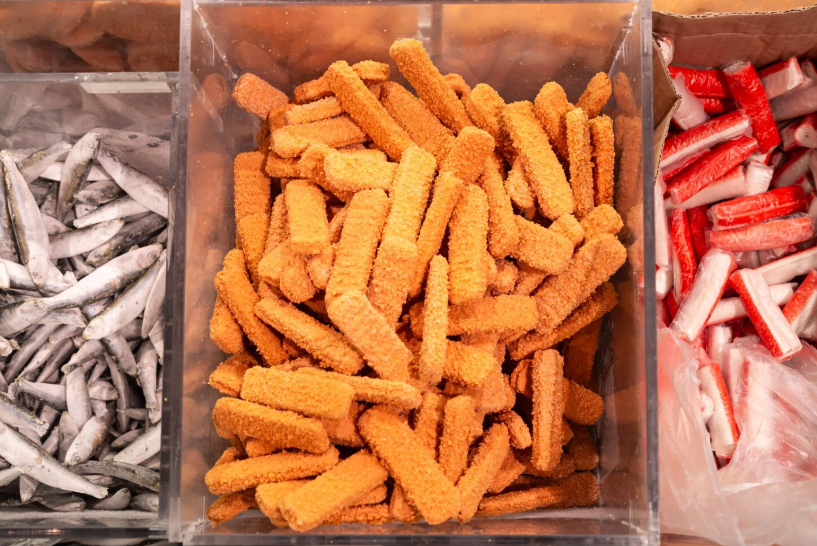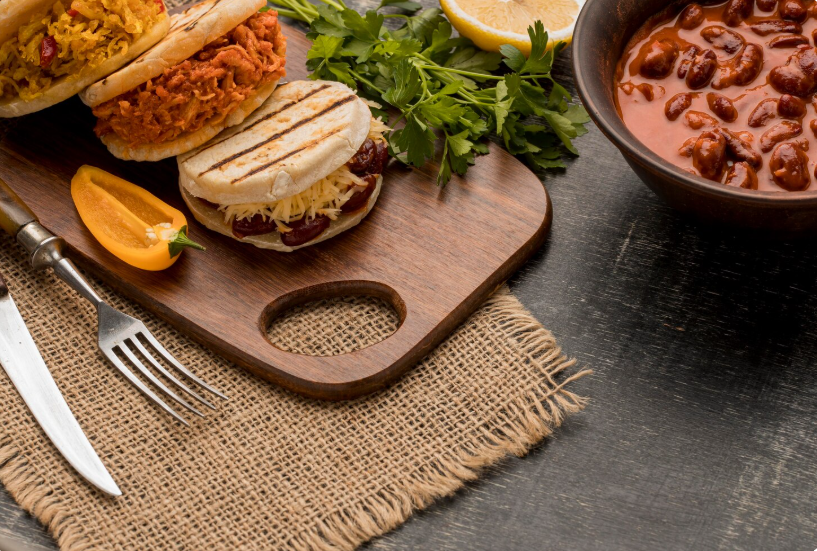
Top Tasty Frozen Snacks Every Houstonian Should Keep at Home
- 11 Nov, 25
- Admin

Houston has become home to one of the largest Venezuelan communities in the United States, bringing with them centuries-old culinary traditions that have enriched the city's already impressive food scene. Venezuelan cuisine offers a distinct mix of indigenous, African, and Spanish influences that creates flavors unlike any other Latin American cuisine, making it an exciting discovery for Houston food enthusiasts.
Venezuelan cooking centers around corn, which appears in various forms throughout traditional dishes. Arepa, the iconic corn cake, serves as both bread and vessel for countless fillings. Cachapas, sweet corn pancakes, offer another beloved corn-based staple. These ingredients connect modern Venezuelan cuisine to pre-Columbian indigenous traditions.
Rice, black beans, and plantains form the holy trinity of Venezuelan side dishes, appearing alongside most main courses. The combination of these elements creates balanced meals that satisfy both nutritionally and culturally, reflecting the African and Spanish colonial influences on Venezuelan food traditions.
Venezuelan cuisine relies heavily on slow-cooking methods that develop deep, rich flavors. Stews and braises are common, allowing tough cuts of meat to become tender while absorbing the spice mixes that characterize Venezuelan cooking. These techniques require patience and skill passed down through generations.
The use of sofrito, a base sauce made from onions, garlic, peppers, and tomatoes, appears in countless Venezuelan dishes. Each family has their own sofrito recipe, creating subtle variations that make every Venezuelan kitchen distinct while maintaining traditional flavor profiles.
Pabellón Criollo stands as Venezuela's national dish, combining shredded beef, black beans, rice, and sweet plantains on a single plate. This combination embodies the multicultural influences that moulded Venezuelan cuisine while providing a complete, satisfying meal that showcases the country's signature flavors.
Tequeños have become Venezuelan cuisine's most popular export, appearing on menus throughout Houston as appetizers or snacks. These cheese-filled, fried wheat flour wraps originated as party foods but have gained international recognition for their addictive combination of crispy exterior and melted cheese interior.
Venezuelan street food culture has found new life in Houston through food trucks and casual restaurants serving traditional snacks. Empanadas filled with various meats, cheese, or vegetables offer portable meals that reflect regional Venezuelan variations in fillings and preparation methods.
Cachapas served with queso de mano (Venezuelan white cheese) and sometimes ham or chicharrón provide sweet and savory combinations that appeal to Houston residents discovering Venezuelan flavors for the first time. These dishes maintain their traditional character while adapting to local ingredient availability.
Venezuelan restaurants throughout Houston offer varying levels of authenticity, from family-owned establishments serving traditional home-style cooking to more modern interpretations that adapt Venezuelan flavors for broader audiences. The most authentic experiences typically come from restaurants owned and operated by Venezuelan families.
Food trucks specializing in Venezuelan cuisine have proliferated throughout Houston, bringing traditional street foods to office districts, festivals, and neighborhoods throughout the metropolitan area. These mobile kitchens often serve some of the most authentic Venezuelan food available outside of Venezuela itself.
Houston's Venezuelan community regularly organizes cultural events that feature traditional foods prepared by community members using family recipes. These gatherings offer some of the most authentic Venezuelan food experiences available in Houston, prepared by people maintaining cultural traditions.
Food festivals celebrating Latin American cuisine often include Venezuelan vendors serving traditional dishes alongside offerings from other countries. These events provide excellent opportunities to sample authentic Venezuelan foods while learning about the cultural context that created them.
Venezuelan immigration to Houston has created a demand for authentic ingredients and prepared foods, leading to specialty stores that import traditional Venezuelan products. These establishments serve both the Venezuelan community and curious Houston residents interested in cooking Venezuelan food at home.
Venezuelan families have opened restaurants, catering businesses, and food production companies that serve Houston's broader community while maintaining connections to their cultural heritage. This economic activity has strengthened Houston's food scene while providing employment opportunities within the Venezuelan community.
Second-generation Venezuelan Americans in Houston often learn traditional cooking methods from their parents and grandparents, ensuring these culinary traditions continue despite geographic separation from Venezuela. Home kitchens become cultural preservation spaces where recipes pass between generations.
Venezuelan cooking classes and cultural organizations in Houston teach traditional food preparation methods to both Venezuelan youth and interested members of other communities. These educational efforts help maintain authentic cooking techniques while building cultural bridges through food.
Authentic Venezuelan cuisine relies on specific ingredients that may be difficult to find outside Venezuelan communities. Queso blanco venezolano, harina de maíz precocida (pre-cooked corn flour), and certain spice mixes are essential for traditional preparations but require specialty sourcing in Houston.
The balance of flavors in Venezuelan cuisine tends toward mild heat with emphasis on aromatic herbs and spices rather than fiery peppers. Cilantro, cumin, achiote, and sweet peppers provide the flavor foundation for most traditional dishes, creating profiles distinct from Mexican or other Latin American cuisines.
Different regions of Venezuela have developed distinct culinary specialties based on local ingredients and cultural influences. Houston's Venezuelan community includes people from various regions, creating opportunities to experience this culinary diversity within the city.
Seasonal availability of certain ingredients in Houston sometimes requires adaptations to traditional recipes, but Venezuelan cooks have learned to maintain authentic flavors using locally available substitutes when necessary.
Houston residents interested in cooking Venezuelan food at home can find ingredients at Latin American markets and specialty stores throughout the city. Many Venezuelan recipes are approachable for home cooks, especially simpler dishes like arepas and basic empanada fillings.
Traditional Venezuelan cooking often involves time-intensive preparation methods that modern Houston lifestyles may not accommodate. Frozen and prepared options allow families to enjoy authentic Venezuelan flavors without dedicating entire days to food preparation.
Venezuelan families in Houston often share cooking knowledge with interested neighbors and friends, creating informal cultural exchange opportunities that benefit both parties. These personal connections provide authentic learning experiences that cookbooks and videos cannot replicate.
Cooking classes focused on Venezuelan cuisine occasionally appear in Houston's culinary education offerings, taught by Venezuelan cooks who can explain both techniques and cultural context behind traditional dishes.
As Houston's Venezuelan community continues growing and establishing itself, Venezuelan cuisine is likely to become more mainstream throughout the city. Second-generation Venezuelan Americans may develop fusion concepts that combine traditional Venezuelan flavors with American cooking styles and ingredients.
The success of Venezuelan restaurants and food businesses in Houston has encouraged more Venezuelan families to consider food-related entrepreneurship, possibly leading to greater availability and variety of authentic Venezuelan foods throughout the metropolitan area.
Houston's embrace of Venezuelan cuisine demonstrates the city's openness to international flavors and its ability to support immigrant communities in maintaining their cultural traditions while contributing to broader cultural horizons. Venezuelan cuisine has found a permanent place in Houston's food scene, enriching the city's culinary options while preserving important cultural traditions for future generations.
You need to Login OR Register for comment.
Comments (0)